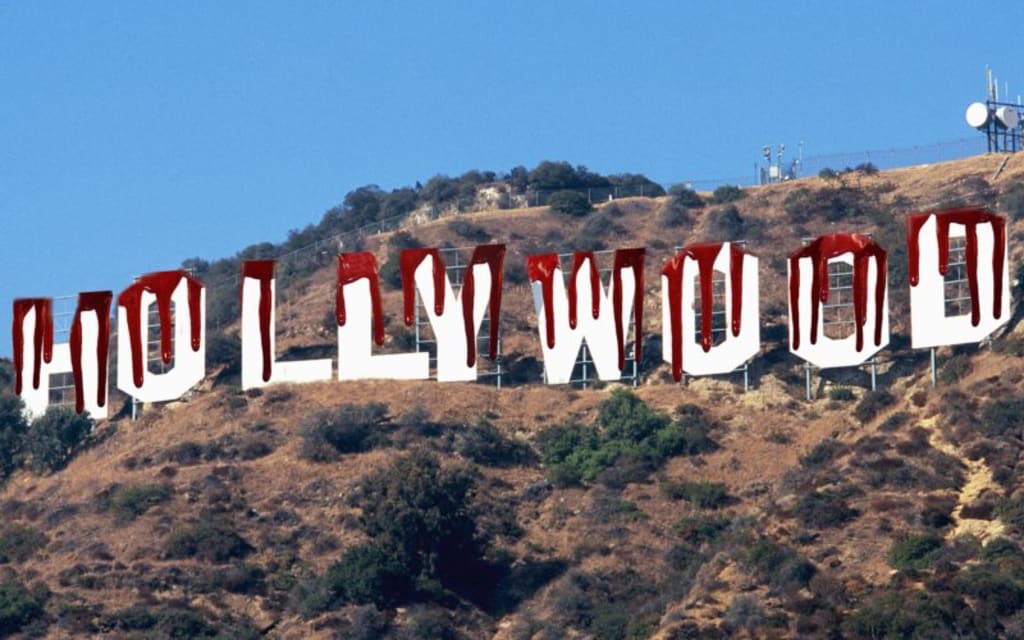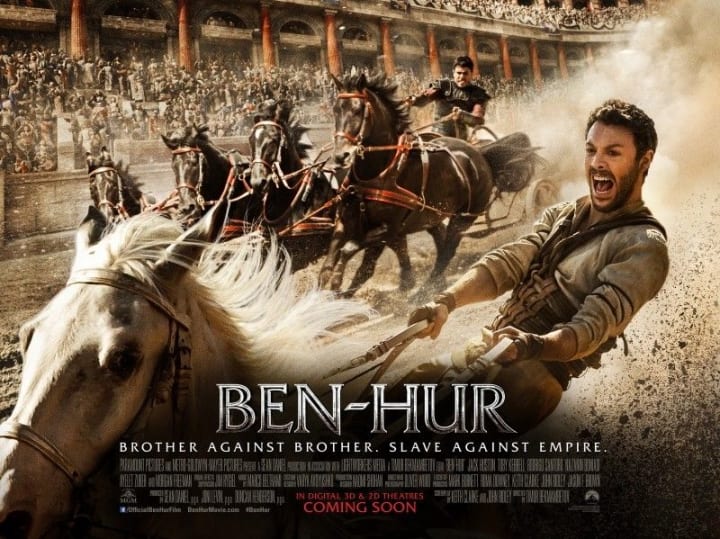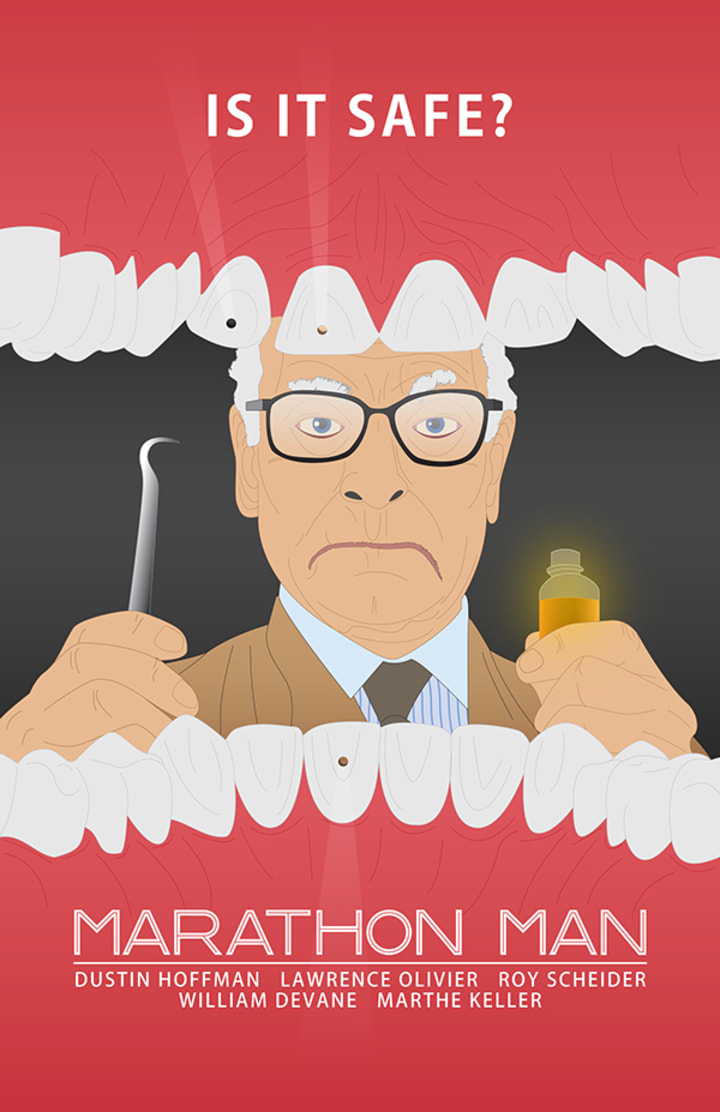What It's Like To Be A: Producer
Spoiler alert: It's not as great as you think.

Ostensibly, I produce movies for a living. Several movies I had a hand in producing have been nominated for Academy Awards, including a win for Best Picture. Pretty heady stuff, to be sure. The reality, though, is slightly less fulfilling.
Most producers go years in between producing movies; in fact, most of our time is spent not making movies. How, you may ask, does one survive in the film business without actually making any movies? Or, more relevantly, what the hell have I been doing for the past several years? Good question. My adventure on the following project is a microcosm of what it's like to be a producer or waste your time completely. The two are often indistinguishable.
This is how it starts: I read hundreds of scripts, articles and books, watch countless films for remake possibilities, listen to tons of ideas – and most of them are crap. It's like a beauty pageant where everyone has either a unibrow or two noses. When you are reading a script, only one thing truly matters, which I learned from my old boss Harvey Weinstein: is it a movie? Not is it a good idea, or is it well written, or is there some big star attached. Is. It. A. Movie?
Not A Movie

Photo by Christian Joudrey
A few years ago, I read a script from a first-time screenwriter that left me giddy. The characters were real, the structure was sound and the story was captivating. That's not to say it didn't have some issues; no script comes out perfectly formed; that would be the genetic equivalent of a baby emerging with Chris Hemsworth’s face. But it was pretty close.
The story focused on a patrolman on the border between California and Mexico. He had done time in Iraq and was now serving his country in a different way. The reality of his life, though, was grim and fairly hopeless. No matter how many illegal activities he and his cohorts stop, countless criminals slip through the cracks. It's a numbers game, and the odds favor the bad guys.
So here you have a good man in an increasingly desperate situation. He's trying to keep his wife and young daughter intact, provide for them, but he knows he'll never get to where he needs to be. Faced with this bleak reality, he’s approached by some Mexican criminals with an offer to let a particular vehicle pass through and he'll be paid handsomely. It's a victimless crime – no drugs or terrorists, merely high-priced foreign call girls who can't easily enter a post 9/11 America.
He decides to look the other way and take the money, which enables him to support his family for a year. Unfortunately, he's asked soon afterwards to let another car through, then another and another. The criminals have him, and they dictate the rules of the game, including threatening his family if he doesn't continue to comply.
It read like a classic thriller with characters you really cared for, plus the added bonus of being extremely topical. Stories about border corruption were splashed across every newspaper and website, and the writer had clearly done his research. I thought to myself, yes, Harvey, it's a movie!

I bought it. The movie had all the earmarks of a critical and commercial success, with a great role for a leading man. Already feeling a fat producer's fee burning a hole in my pocket, I researched the cost of renting a villa for two weeks in St Bart’s.
I sent the script out to several agents, who had many of their top director clients read it. I found myself fielding calls from many of my heroes, filmmakers I'd dreamt of working with, along with several exciting up-and-comers. I finally decided on someone in the middle; he'd just directed a very well received film whose lead actor was nominated for an Academy Award. Actors would line up to work with him, I was assured, and every studio was dying to make his next film.
The first thing he did was to get the writer to rewrite the script, tipping it slightly into more "character drama" territory. Not satisfied, he then rewrote it himself, shoving it completely out of "commercial thriller" territory.
Six months had passed. I consulted Expedia, seeing if a week in a hotel in Miami wasn't a more practical idea.
We sent the new draft out to all the top actors, and the responses felt like what models must hear every day — too dark, too small, too flat. One well-known actor, possibly the most humorless man I've ever met — which, in my business, is saying a lot – loved the script but was "looking to branch out into comedy". I wasn't quite sure which branch, but I was pretty certain it was weak and thin and would cause the whole tree to die. I certainly didn't want to find out.
The director got a very well respected actor to read it, and the actor loved it, with one caveat: he wanted a rewrite done, with his input. They huddled together for weeks and emerged with a script that was basically a 90-minute monologue about a guy who works at the border. At least, I think he worked at the border.
Burying my concerns, I sent the "package" out to all the major studios. The silence was deafening. One by one, various executives read it and, one by one, they passed. There was a nibble here and there, but it was usually by someone in the mailroom with – sadly – no authority to greenlight a $30 million movie. (But they obviously had immaculate taste.)
After months of waiting and pleading, I found a studio that was willing to finance it – for roughly the budget of a black and white short documentary shot on an iPhone.
A Year Had Now Passed Since I First Bought The Script.

It was time to regroup. After much Sturm und Drang – mostly on my part – the director and I parted ways. I decided on a different approach. I went back to the original script and tried, once again, to court a big-name actor. Surely someone else would see in it what I first did.
Miraculously, it worked. After several months of near-meetings and almost-conversations, I finally sat down with an Oscar winner who was perfect for the part. He loved it, he said, one of the best scripts he'd ever read. I sat and listened, waiting for the other shoe to drop — he'd want the character to be deaf, he'd want the story to take place in Kazakhstan, he'd want a competent producer. But all I got was yes, he was in, and let's go get ourselves a director.
Now I had a movie star.
The directors started calling again. I even heard from one I'd originally passed on because he had wanted to add chase scenes and explosions – just stick 'em in anywhere, he'd said, that's what audiences really wanted nowadays. Now we had a 30-minute conversation where he pretended to forget his earlier thoughts and proclaimed the script to be "perfect as is".
This was shaping up to be quite a movie, and the star promised me this would be his next film, even mentioning it on a talk show while promoting another movie.
Two Weeks in St. Bart's: $15,000.

There was a buzz around town, which always happens when a star commits to a project, and I returned to the ring for the easy part – going back to the studios with my shiny, new, glorious package. Only I quickly discovered that the package wasn't so glorious after all.
The star was (and, in fact, still is) African-American. His wife in the movie would be as well, and the "other woman" would be played by a Latino actress. For some reason everyone was now referring to my movie as an "urban film" (code for a movie for black people).
The part had been written for a white guy, but this was a fantastic actor, and people of all colors and ethnicities work on the border. Even so, my casting choice would prove to be a huge problem; apparently, there are many countries in the world where movies starring African-Americans other than Will Smith need not apply.
Nobody in town would finance the movie, because they claimed it had literally no appeal overseas. My weak protests – wouldn't people go if it were actually a good movie? – were met with laughter. What does a "good movie" have to do with anything?
It Had Now Been 4 years Since I Last Stepped Foot On A Set.

People in the industry were beginning to wonder – what was I working on? Calls were going unreturned. I developed the unmistakable stench of desperation. My girlfriend started leaving the mortgage payment notices (and her shopping receipts) on my bedside table.
A producer friend once told me: "You're either making a movie or you're not. Everything else is just talk." (He hasn't worked in ten years, but that's another story.)
I clearly wasn't making a movie. What I was doing was bleeding money. I had rung up a profoundly large credit card bill wooing the various talent (one of the actors had an undiagnosed addiction to hotel macadamia nuts) ludicrously high legal fees (negotiating everyone's deals) and astounding costs for therapy and medication (very poor health care system in America). This was in addition to actually buying the script, paying for rewrites and flying people back and forth for meetings.
Stuck in Purgatory, I'm currently faced with several decisions. Find a new actor? Hire a different director? Wait for the studio regimes to change and pray that someone responds to my script? Submit an application to Chipotle?
It's now been 6 years since I last produced a movie, and the script sits prominently on my desk, taunting me daily. Help me, it pleads, get me to the screen where I belong. Then there are the other voices: Heed the signs, people tell me, this one just wasn't meant to be. And still I carry on, for some unknown reason. Passion? Stubbornness? Desire? Stupidity? Who knows – it's probably a combination of all of the above, but mainly the latter.
For these are the tools of my trade. I'm a producer.
About the Creator
Rick Schwartz
Rick Schwartz's producer credits include The Departed, Black Swan and Lip Sync Battle. He is the Founder of Jerrick.







Comments (3)
What a curious life path. It is a very well-written piece, and reading it felt almost guilty, as if observing a veiled life. Whether what you have written was to unburden your mind or exercise your art- I wish for you that all things line up just the right way. and if they don't, then I hope you will see that fantastic pattern they are forming and grab the opportunity. Cheers!
As one who has tried to woo Hollywood with three unusual true story scripts and been mildly encouraged by placing in several L.A. screenwriting contests, I found this article really interesting - seeing what it's like on the other side of the fence, what a producer goes through to promote that one of a kind, destined to be another "To Kill A Mockingbird" bit of genius. I resonate with that stubborn perseverance and faith in one's work and am eager for the next article. Write on...
It's really nice